From research to rollout: How IISc’s Society for Innovation and Development (SID) supports Deep Science startups
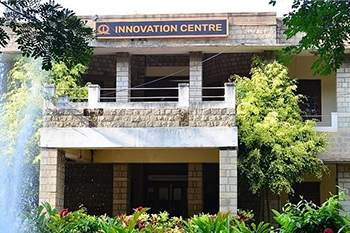
CS Murali is the Chairman of STEM Cell, SID (Society for Innovation and Development), at the Indian Institute of Science (IISc). He was earlier the Chief of Corporate Affairs at Cognizant Technology Solutions; Operating Partner at Connect Capital Ventures; Chief Operating Officer at HP Globalsoft; and President and CEO of LEC (India) Software Centre.
He joins us in this interview withYourStory on the vision, achievements, and future plans of IISC SID, along with words of advice for aspiring founders.
Edited excerpts from the interview:
YourStory [YS]: What was the founding vision of your incubator, and how is it supported?
CS Murali [CSM]: SID is the industry interface of IISc. SID coordinates all industry R&D, collaborative developments, and science and technology-based business incubation and transformation activities at IISc. SID’s objective is to translate scientific knowledge into practice for the benefit of the society.
SID has three divisions – CORE Labs that engages with large corporations for multiyear research, TIME^2 that works with MSMEs in seeding disruptive innovation, and STEM Cell that incubates Deep Science Startups. So far, SID has executed over 500 projects and has incubated over 40 deep science startups.
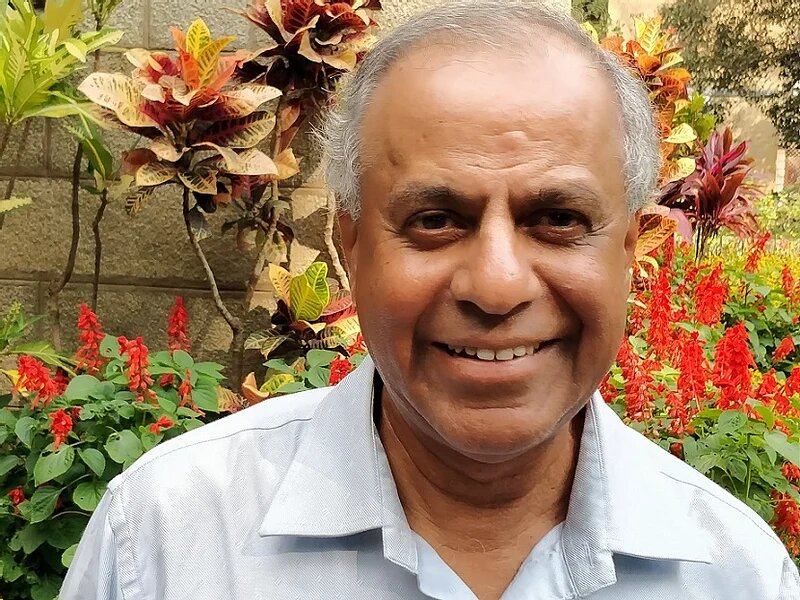
CS Murali, Chairman of the STEM Cell, SID
YS: What is the profile of the leaders of your incubator?
CSM: I am ably assisted by experts with a background in science, technology, business, and entrepreneurship. Prof. Balan Gurumoorthy is the CEO of SID. He was the Co-founder of 3D Solid Compression, and visiting professor at Université Lumière Lyon and Stanford University. He is a graduate of Carnegie Mellon University and IIT Madras.
Raj Waghray is head of the Entrepreneurship Cell at SID. He is also author of Gita in My Homework and The After-taste of Transcendence. He was the Founder of 16Petals.com, AVP at Collabera, and Senior Manager – Technology Consulting Group at Cognizant Technology Solutions. He is a graduate of Birla Institute of Technology (Mesra) and Osmania University.
Prof. CV Natraj is our Chief Scientific Advisor, and an independent director on the boards of Rallis and Tata Chemicals. He was earlier SVP at Unilever, and conducted research at University of Michigan, Cardiff University, and University of Wales, Cardiff. He is a graduate of Indian Institute of Science.
YS: What would you say are the opportunities and challenges for Indian entrepreneurs?
CSM: There are opportunities across every domain – be it in the area of space technology, clean tech, biotech, medical devices, AI, and many others. While generic startup challenges like product-market fit and raising capital remain the same, Deep Science startups have additional unique challenges.
It takes a significantly longer period for Deep Science startups to bring their technology to market. While software startups can build their MVP in a short period of say 12 months, in contrast, Deep Science startups take on an average three to five years before they can build a MVP that they can take to market.
The need for sophisticated labs, equipment, materials, and prototyping facility means that it takes more capital to build an MVP. In most cases, the equipment has to be imported. In case of startups that are working to build medical devices, such as biotech startups, the certification and regulatory compliances add to time and cost.
At SID, we provide world class infrastructure to startups, rental free space for their duration of stay in the incubation centre, access to labs at IISc, technical mentorship by faculty at IISc, business mentorship, and insurance cover for founders and startup employees and their families.
We also give access and connect to a global community of IISc alumni, investors, government and commercial entities. In addition, we have a model of deep business mentorship, associating startups with mentors in respective domains and providing specific case to case support to each startup to help them achieve their goals.
We incubate startups that work to commercialise Deep Science and do not incubate pure-play social entrepreneurs. That said, all entrepreneurs face same the set of challenges, broadly related to product, market, talent and capital.
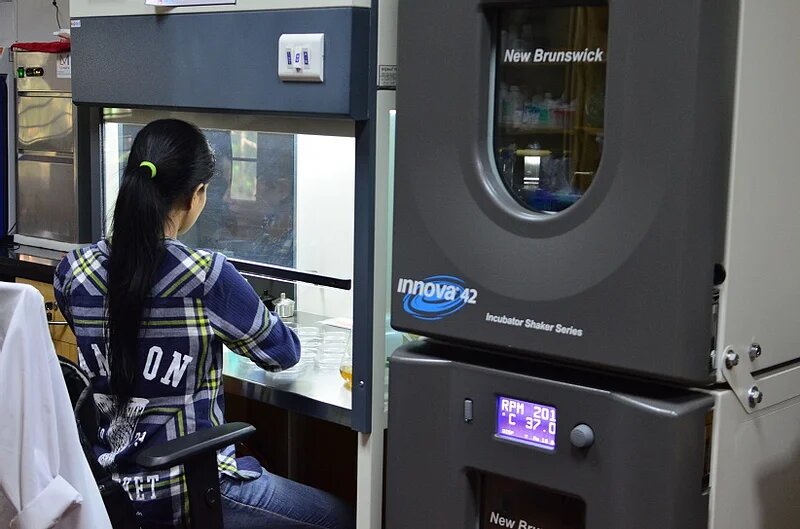
Mynvax at SID (image courtesy: Mynax)
YS: What is the selection criteria for startups in your incubator?
CSM: We have a rigorous and repeatable incubation process to evaluate entrepreneurs and business ideas. A review team comprising of experts drawn from the Industry, VC community, and IISc looks at multiple parameters before we decide to incubate a startup.
The parameters include entrepreneurial team capability and commitment, underlying technology, market, competitive landscape, business model, and risks.
We take 4-10 percent equity stake in the startup. We have formed partnerships with several universities, MNCs, and government agencies both at the Center and State levels.
YS: What kinds of IP are being created by your startups?
CSM: We have startups spread across several domains – vaccines, BioTech, medical devices, space tech, clean tech, and others. Each startup has one more patents in the domain that they are working in.
This translates to rental free incubation for three to five years, deep technical mentorship with IISc faculty, global connects leveraging IISc alumni, and connects with global VC firms.
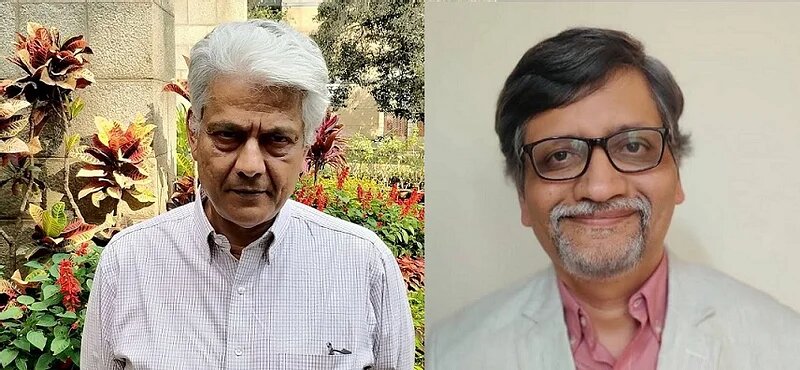
Prof. CV Natraj (Scientific Advisor – left) and Raj Waghray (Head, STEM Cell), SID
YS: What are some challenges you face, and how do you plan to overcome them?
CSM: As a Deep Science incubator, we are cognizant of the fact our startups need significant upfront capital (about Rs 3 crore on average) before they can build their MVP.
Most investors shy away from funding startups that are pre-revenue and hence we would like to step in and provide this kind of early stage capital to our startups. This is work in progress for us.
YS: What would you define as success for your incubator?
CSM: We measure our success by the success of our incubatees – every graduated company that is revenue positive or has been able to raise external capital is a successful outcome for us.
YS: Which are some outstanding startups that have graduated from your incubator?
CSM: Some of the notable startups are Pathshodh Healthcare (bio-sensing for rapid diagnosis), Azooka Labs (fluorescent dyes for molecular diagnostics), Bellatrix Aerospace (propulsion systems for satellites), Simyog (automotive electronics design tools), and Sickle Innovation (farming design solutions).
YS: How do you compare and contrast India’s incubators with that of other countries like the US and China?
CSM: We haven’t done a formal study on this, but online studies show that Deep Science continues to be grossly underfunded in India as compared to countries such as the US, China, and Israel. This indirectly translates to underfunding in the ecosystem and impacts incubators working in Deep Science domains.

YS: What are your plans for the coming 3-5 years with respect to new startups?
CSM: There is an upcoming 140,000 sq ft of research park coming up within the campus and that will allow us to increase the number of startups that we can incubate. We intend to do twice the number of startups we do currently once the building is commissioned.
YS: What challenges has COVID-19 posed for Indian startups? And at the same time, what new opportunities are opening up?
CSM: As soon as COVID-19 broke out, some of our startups repurposed what they were doing to find solutions in the fight against the pandemic. Here are some examples.
Mynvax was building vaccines for local influenza. As soon as the World Health Organisation (WHO) released the DNA and RNA of the COVID-19 virus, Mynvax started focusing on developing and building a vaccine for it.
Equine Biotech, a social entrepreneurial initiative by Prof. Utpal Tatu, has engineered and developed an extremely sensitive, rapid, and affordable RT-PCR diagnostic kit that is approved by ICMR, for accurate and affordable diagnosis of COVID-19.
Azooka Labs has developed a diagnostic test kit (LAMP CRISPER LFD) that is inexpensive, accurate, and provides results rapidly. It allows for point of care use on multiple specimens at a time without need for technical expertise and high end equipment.
PathShodh Healthcare is now building a COVID-19 antibody test and an antigen test to be added to its already existing hand-held device called Anupath.
AI Health Highway has built a web-based triaging tool to categorise risk assessment and this is being deployed and used by its corporate customers to manage its blue collar workforce.
Pratimesh Labs is building a sensitive method of detecting inflammation and rapid detection helps track potential carriers and slows the spread of disease. This is currently under development.
General Aeronautics has repurposed its general-purpose drones to fumigate areas and to provide crowd control. These drones were deployed by six cities in the fight against COVID-19, including BBMP.
Shanmukha Innovations has designed and developed mobile labs for RT-PCR tests. These have been deployed by the Govt of Karnataka and Uttarakhand.

Mynvax Co-founders Raghavan Varadarajan (left) and Gautham Nadig (image courtesy: Mynax)
YS: How can better partnerships be forged between incubators, industry, and universities?
CSM: Beyond these three mentioned players, there are several others in the ecosystem, such as government agencies and media. Each stakeholder in the startup ecosystem has a role to play and one cannot succeed without the other.
YS: What are your recommendations for Indian policymakers to make business easier for incubators, investors, researchers, and startups in India?
CSM: Policymakers and government: Do not force-fit a model to all incubators. Depending on the type of startups and domain focus, allow each incubator to evolve its own model. This includes incubation period, infrastructure support, and technical and business mentoring. The government should provide grants to startups that build hardware-based products to enable them to reach MVP stage when they can attract investment.
Investors: India needs more truly early-stage investors who can support startups that have a high-risk reward profile.
Researchers: Spend some time to understand real world problems in industry and society so that your research has a purpose.
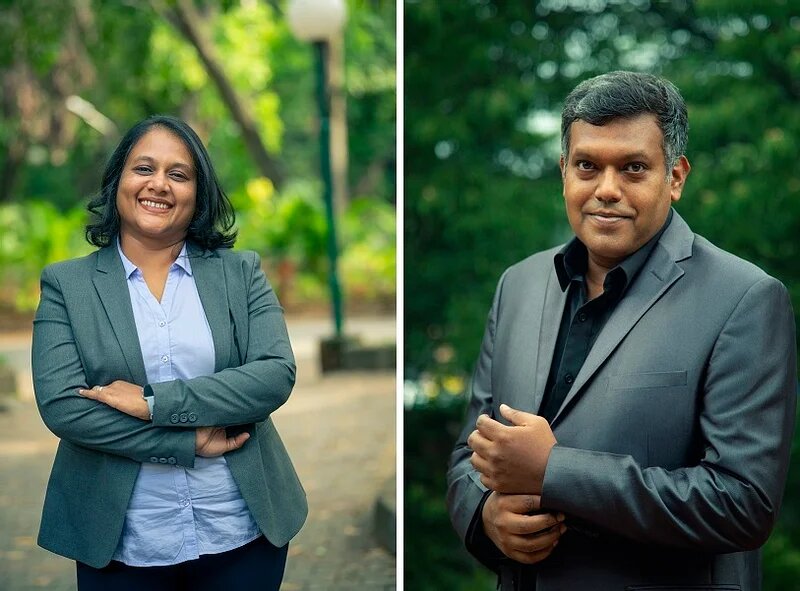
Dr. Benazir Fathima (Co-founder and CSO – left) and Alex Paul (Co-founder and CEO), Azooka Life Sciences
YS: What are your parting words of advice to the startups and entrepreneurs in our audience?
CSM: It takes many years to build a good product and hence needs a long-term mindset. Talking to prospective customers and understanding the market is not a one-time effort, but a continuous process.
YS: Which startups are part of your SID STEM programme?
CSM: Here are some of the startups at SID from 2014 to 2020. A handful have graduated already: Simyog, Bellatrix, Path Shodh, Sickle Innovation, Equine Biotech, Azooka, and Superwave Technologies.
2020
Mithra Increst (founded by Dr NKS Rajan) has patented technology that converts precipitated silica from rice husk ash and removes H2S from gases in industrial waste treatment units. Precipitated silica is a $2 billion market globally.
Agnit Semiconductor (founded by Prof Srinivasan Raghavan) is working in the field of GaN, which has emerged as the second most important semiconductor in India since Si. It is expected to play a big role in e-vehicles, 5G, and military applications.
Delta X Automotive (founded by Kithir Navaz) is in the space of shared electric mobility, which is the need of the country today. DeltaX is building a compact EV for short commuting needs on a subscription basis.
Digantara Space Tech (founded by Anirudh Sharma) has developed satellite-based solutions to map objects as small as 1 cm. It will also help end-to-end monitoring of aircraft, since space debris constitutes a huge problem.
Nuthan Labs (founded by HS Nuthan) has an air purifier system involving specific nanomaterials to tackle pollutants and microbes, indoors and outdoors. Motorised suction provides effective CADR (Clean Air Delivery Rate) for large volumes.
HealthSeq Precision Medicine (founded by Prof Nagasuma Chandra) offers accurate and personalised disease diagnosis and treatment, with integrated analysis of genomic, clinical and pathology information. It provides decision support to clinicians at reduced cost.
Maithra MedTech Technology (founded by Leena Kunnath) has a monitoring system to treat glaucoma. It can be self-administered for eye-drops and has standards based interoperability using HL7FHIR. It can communicate with healthcare applications electronically. Other advantages include drug loss prevention, accurate drug use data collection, and prevention of bottle tip contamination
NeuIntegrals MedTech (founded by Manoj Kumar R and Pramod SN) is an assistive chair for geriatric people and people with disabilities. Inability to bear excessive loads on the knees, hip and muscles, and joint pain, exacerbates with time due to unassisted seating. This elderly assistive chair has a passive mechanism to provide assistance without electric power. It is robust, low cost, and customisable.

Team Digantara Technologies at SID: Tanveer Ahmed, Co-founder and CTO (left-most) and Anirudh Sharma, Co-founder and CEO (right-most)
2019
AI Health Highway (founded by Dr Satish Jeevannavar) offers cost-effective screening for cardiovascular disorders, the world’s #1 killer. India has only 4,000+ cardiologists, when the actual need is close to 88,000+. The startup is building AiSteth, an acoustics device that can screen, detect, and predict heart disorders using state-of-the-art signal processing and AI.
Direct Electric (founded by Chaitanya) aims to supply chargers to EV manufacturing companies and charging network operators. It focuses on two-wheelers and three-wheelers. The differentiation is in the charging time, and efficiency which is based on patented technology.
2018
RaGaVeRa Indic Technologies (founded by Prof. AG Ramakrishnan) has patented technology in the area of OCR, TTS, and transliteration for Indian languages. The vernacular internet user is underserved though over 300 million people speak an Indian language. There is a significant demand for services being available in Indian languages.
Urjalinks (founded by Prof Gurunath Gurrala) is a smart switch and demand response platform. It closes the loop in IoT-based solutions by providing last-mile control based on distributed analytics (edge + cloud). The first use case being orchestrated is in the energy domain.
Protein Design (founded by Prof. Rajan R Dighe) is working in the field of biosimilars. They are officially approved versions of original “innovator” products, and can be manufactured when the original product’s patent expires. The startup aims to develop clones for expressing various biologically active proteins for diagnostic and therapeutic applications, such as antibodies and hormones.
Mynvax Vaccines (co-founded by Prof Raghavan and Gautham Nadig) uses experimental and computational protein design techniques developed at IISc, to design novel and improved vaccines for infectious diseases. Our vision is to develop universal human and avian influenza vaccines, as well as rapidly producible seasonal influenza vaccines.

Source:https://yourstory.com/2020/12/iisc-sid-incubator-science startups?
utm_pageloadtype=scroll
